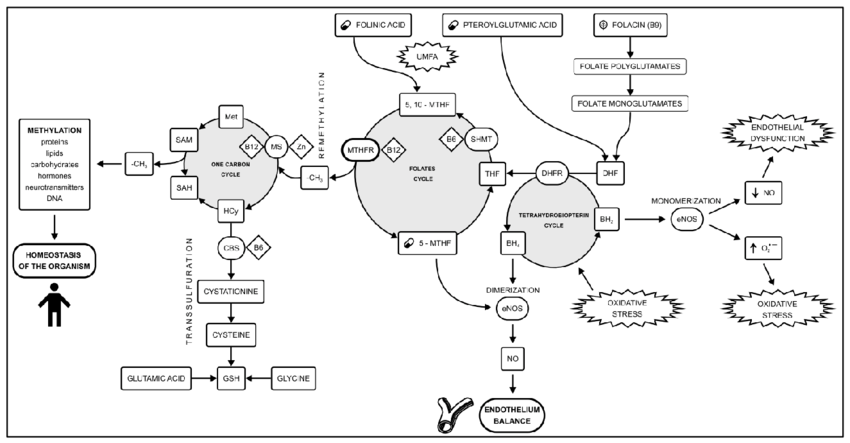
Methylenetetrahydrofolate reductase (MTHFR) gene instructs the body to make an enzyme necessary to convert vitamin B9 (folate) into a usable form of folate called methylfolate. This enzyme is also important in the process of converting homocysteine into methionine — an amino acid the body needs for growth and metabolism.
How MTHFR Impacts Your Health?
If your MTHFR enzyme isn’t functioning optimally, it can lead to:
MTHFR is our “master methylation” gene and is critical for DNA synthesis and repair, detoxification from toxins, and creating neurotransmitters. This gene can essentially “turn-on” or “turn-off” other genes. MTHFR needs sufficient folate (found in beef liver, dark green veggies, asparagus, Brussels, bananas, legumes, eggs, nuts and seeds) to function properly.
If you have a variant in the MTHFR gene, loading up on methylfolate is not always helpful and can even cause unwanted side effects like anxiety, agitation, and insomnia…especially for those with the C677T variant, slow COMT, and/or VDR variants.
Common MTHFR Variants:
Support for MTHFR:
Keep in mind that there are many nutrients involved in methylation and all of our vitamins and mineral work synergistically with each other. Taking large doses of one nutrient, may deplete another. Therefore, it’s always best to try to get as much nutrition from food as possible, start with a high quality multivitamin, and get your blood levels tested after 3 months to see if there is still a deficiency.
If you would like to learn more about genetic testing and view a sample report, click HERE to visit MaxGen Labs website.
Debi Bryk NC, BCHN is not a medical doctor. The information on this website should not be considered medical advice and is not intended to treat, diagnose, prevent, or cure any conditions.